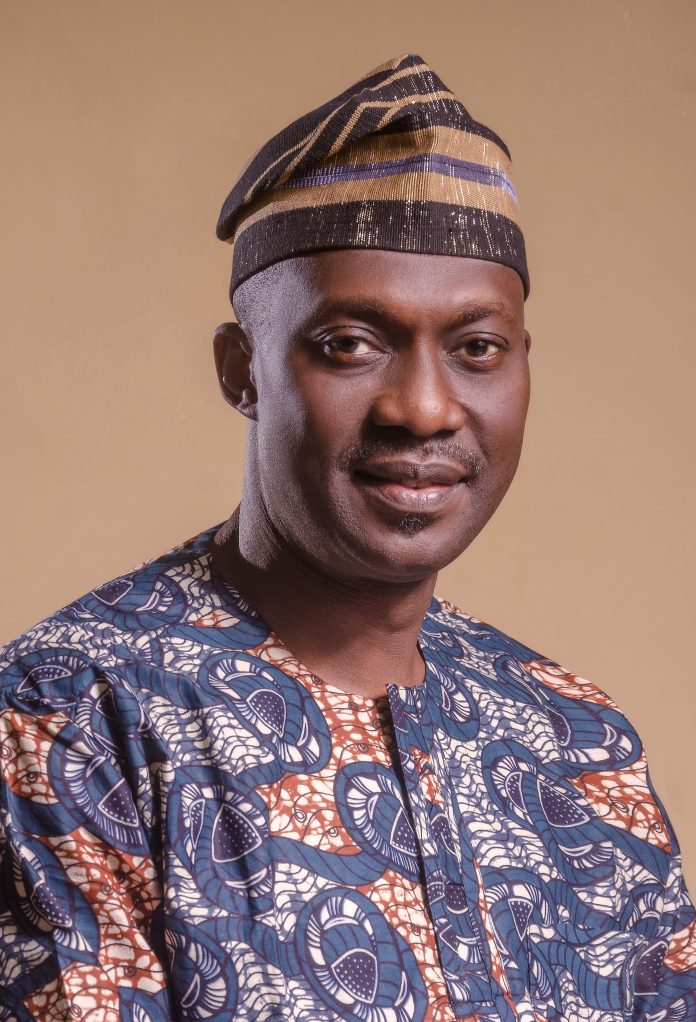Kyari
At the 2024 edition of CERAWeek by S&P Global holding in Houston, the United States with the theme, ‘Multidimensional Energy Transition: Markets, climate, technology and geopolitics,’ the Group Chief Executive Officer of the Nigerian National Petroleum Company Ltd, Mele Kyari spoke on the ongoing transformation at the national oil company and issues around energy affordability, availability and security among others.
Excerpts
Take us through some of the transformation that has been going on at the NNPCL?
The NNPCL is clearly the largest oil and gas company in Africa and also the largest corporate entity in Africa. It is very critical to Nigeria’s resource management. Everything that we do in our country has a lot of connection with the NNPCL
So, in the past, this company was a corporation clearly owned by government and it is also a national company, it does many things that are typical of many past national oil companies and we need to move away from that situation. We have reformed the process that took us to where we are today and converted it into a fully limited liability company that means it’s answerable to shareholders. Today, the shareholders are largely the entire population of the country, which is very understandable, and we have started the situation where we can have other people earning interest in this in this company. By this, what we did was to create a company that must pay taxes, pay royalties, and also, at the end, is able to provide dividends to the shareholder.
The oil and gas industry in Nigeria has matured to an extent that we can say any company operating, not just us, can actually break even on to the next benefit level.
What’s really happening today is that we have a national oil company, which is commercial which has progressed from a loss-making company typically to now a profit-making company that is able to not just provide dividends to shareholders, create value to its stakeholders, and its partners, some of them are international companies, some local companies in a manner that benefits all but ultimately, fully accountable, a company that can actually migrate ultimately to a quoted company.
So, does this mean that the government will give up its own shares when the NNPCL becomes a quoted company?
It’s clearly in the new law establishing the company. What happened was that there was a reform process backed by law, it’s called the Petroleum Industry Act. and what that did is to provide a pathway to getting this company quored. So, it does create that opportunity never existed in the past, and therefore, ultimately, at maturity, this company would be owned by shareholders
Is there a date when the NNPCL would be quoted?
The law anticipates within three years of incorporation of the company, we can start the process right and therefore, we are within sight.
One of the problems that the NNPCL has suffered from is the crude oil theft in the Niger-Delta. How is NNPCL addressing that?
Clearly, oil theft is not necessarily a local challenge. It does happen in very many jurisdictions, but perhaps in today’s context, we see it in our country. The NNPCL is working on it, and it is fighting oil theft in our country. Yes, it’s up normal, but it’s well within control. We’re able to recover most of our production and building back confidence so that investor can put their money into the business and, of course our advocacy is always that you can’t steal oil and taken to the market. This market is a very global market, and it makes very big business sense when we see it from that context. The way you see blood diamond is the same way you almost see it because oil that comes from somewhere typically ends up in the refinery. We know where oil is coming from and those transactions, you know, pass through banks, regulatory institutions, and therefore while we know and understand that it’s a local problem, but clearly, it’s an international misfortune.
What we’re doing today just to give an example in context. In 2022, production fell below a million barrels. Today, we have come back to 1.6 million barrels per day. We actually reached up to 1.7 million barrels per day. That means recovery of over 700,000 per day.
So, where’s the focus of your investment now? Is it in the upstream gas, or oil sector?
Today, our focus is building our capacity to deliver gas into the domestic market. Yes, we understand you all need gas, and we also see the clear connection between energy availability, sufficiency, and development of gas in any country that is gas rich country. We’re actually a gas country with associated oil, any people don’t realise this, we have more gas than oil equivalent and that means our focus to see how can we use gas to provide the alternative fuel that we need. We understand the ongoing conversations around energy transition, but what we are trying to sort out is the issue of energy availability and the cheapest route to that in our context is to develop gas into the domestic market and provide a replacement fuel before you really worry about something else. Yes, our focus is on gas for the domestic market. So, our focus is building the gas, developing the resources,
Does this mean this has been a long objective to harness the gas and get it into the market?
Yes, absolutely because we see a clear opportunity that gas created today, which wasn’t there 10 years ago.
Are you building the pipelines and networks now for the gas?
Today, we were building a number of trunk lines that will supply gas within our network. And, of course, it’s very understanding as NNPC is driving us forward in this situation. And building the infrastructure means that people will upscale and can actually now produce the gas, or put into our network and this synergy is working and, perhaps within the next three, four years, there will be clearly in country, gas infrastructure.
What is the scale of investments that would be required for these gas infrastructure projects?
What we see is that we will probably need between $10bn to $15bn in two to three years. That should cover the immediate gap. And of course, looking beyond providing gas in the domestic market, which is to see how relationships and partnerships can create gas for export.
And of course, when you look at that, and then probably for another incremental $10bn to $12bn and creating the opportunity for growth.
Do you think there are new opportunities for Nigeria in terms of the LNG global gas market?
There is an ongoing engagement, and it is at a very advanced stage to create a pipeline that can pass through 13 African countries into Morocco and then jump into Europe. What that will do is to create integration among the African countries, a number of countries that do not have gas resources so that that collaboration will enable them have access to those pipelines, and our estimate is to see a $25bn project. The alternate route is to pass through the centre of our country all the way through the Sahara into Algeria into Europe and this is very clear, it is practical, we do not have issues around availability of the gas resources because it is there and of course we also understand that maybe a little slower but surely much cheaper process of transporting gas across the region.
Have these projects fully started, or are they just at the planning stages?
The Nigeria-Morocco gas pipeline is beyond planning. We hope to see FID by the end of the year.
Do you see opportunities to expand Nigeria’s role in LNG with the US and with Qatar and other developments. Are those opportunities still there?
Obviously, yes. Today, we were building Train 7, and it will likely double our current capacity in the NLNG . Also, we are working on two other projects. One is the fixed LNG project and we have reached an advanced stage of commitment so that we can bring back another 10 million tonnes facility in the country, and several other floating LNG projects but obviously, we have a line of sight around at least three to 4 LNG projects, We are also engaging our partner to see how we can add another train on the LNG making it eight. We see huge opportunities.
The theme of this conference is the multi-dimensional energy transition. How does NNPC see the issues and questions around energy transition for Africa and Nigeria?
It’s a very difficult situation for Sub-Saharan African countries. In some countries, many developing countries, and mostly in Sub Saharan Africa, we are actually dealing with energy availability and not transmission. Energy availability clearly speeds to energy security. This is very common, and we have seen it in all the challenges that have been thrown up by recent geopolitical events and issues around energy transition. It is clear that the country’s most secure security of supply to the country. And you can talk about energy security when it’s not even available. For instance, in most of our country, about 70 per cent of the populations don’t have access to clean cooking oil, about 50 per cent don’t have access to electricity.
So, it’s clearly a gap that you have to fill. And what’s the best way of doing it?
Typical is everyone assuming that what you need to do is to cover that with renewables, but you must find the money for the renewables. So, where’s it going to come? From a resource dependent country like our country. If you say you’re going for complete substitution today, then you are actually sacrificing the possibility of the alternative renewable platform that will be required.
Therefore, for us, the transition must be differentiated. You have to deal with the challenges of today. Unfortunately, this is what it is. But you have to deal with the problems of supply today in the sense that there’s absolute scarcity of energy in many African countries. So, we’re dealing with them, and we are very conscious of the fact that our business creates many impacts on the environment. No doubt, nobody’s disputing this. You’re not doing a catch off. Otherwise, if you say, look, switch off the whole of Africa’s contribution to emissions, probably you are going to switch up 3 per cent and it won’t make any difference even if you switch it off.
We understand that there is no competition around, but the reality is that you all need to support countries in Sub Saharan Africa in particular to close that energy availability gap.
The Whistler
























